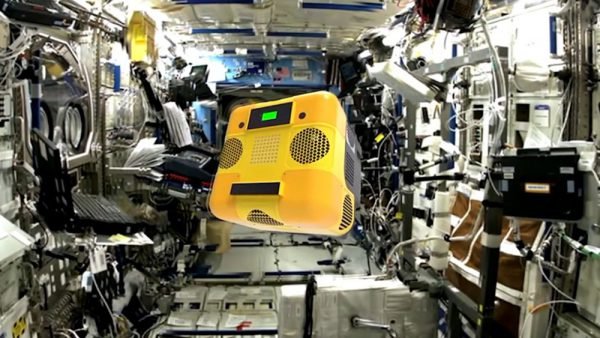NASA has a new robot and it is getting ready to work.
Astrobee, NASA’s free-flying robot system, is designed especially to give astronauts a helping hand in space. In the International Space Station, this robot had its first hardware checks this month.
Astrobee
Image Source: NASA
This system is a trio of robots named Honey, Queen, and Bumble. These are propelled by electric fans and have the capacity to return to their docking stations to recharge their batteries. Among these three, Bumble and Honey were launched to the space station on 17 April.
Astronaut Anne McClain performed the first series of tests on Astrobee. This included a check of the robot’s cameras, avionics, propulsion, and docking for both power and data transfer. NASA posted a picture of the same online.
Astrobee has been tested for its ability to take care of the spacecraft when astronauts are away from it. NASA explains this as a crucial step for deep-space missions that involve its plan to return to the moon.
Features of Astrobee
Image Source: Popular Mechanics
This ultra-advanced robot has cameras, microphones, and many other sensors that will help operators on the ground to effectively monitor it.
The Astrobee can fly independently, be controlled, and allows astronauts to concentrate on things that are much more important. These robots are modular, meaning that more features can be added to them as and when needed. More tests are to be run on these systems until they get to work. The project commissioning date is slated around October or November and tests will be conducted until then.
The researchers are also planning to conduct more complex experiments on Astrobee such as checking how they can carry payloads. These experiments are expected to begin in 2020.
This cube robot that looks a little like Disney Pixar’s character Wall-E leaves me wondering whether it can do incredible things like it.
However, more on that later!
0